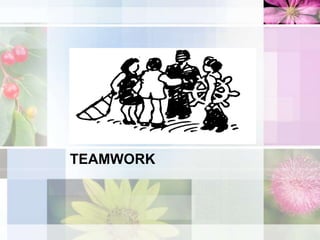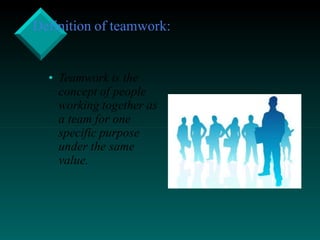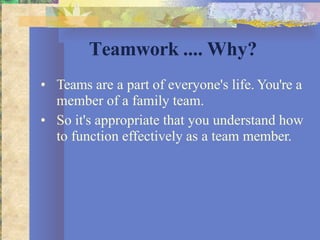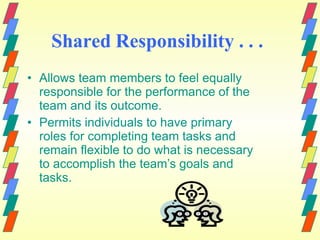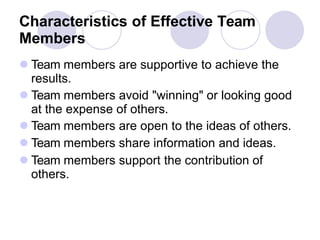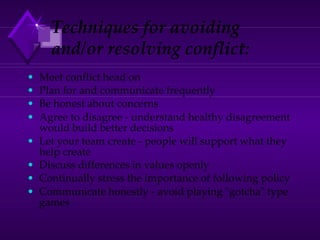Teamwork involves people working together for a common purpose under shared values. Effective teamwork relies on open communication, shared responsibility among members, and members supporting each other. It is important for team members to listen to each other, participate fully, and resolve conflicts constructively. When conflicts do arise, addressing issues openly and finding compromises can help build stronger decisions and team relationships. Overall, teamwork aims to improve productivity and reduce stress by maintaining cooperative and collaborative environments.
